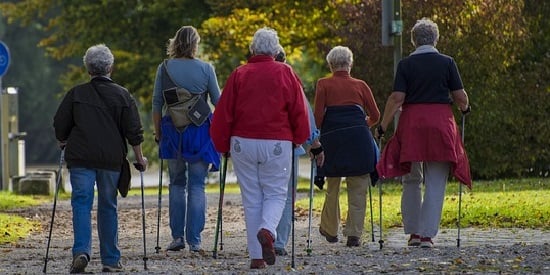Mental health care from dietitians, exercise physiologists equal to psychologists, study finds
Media release
In a world first study by Deakin University, "lifestyle therapy" delivered by trained practitioners has been shown to achieve the same improved mental health outcomes, at the same cost, as care delivered by psychologists.
The eight-week trial by Deakin's Food & Mood Centre found depressive symptoms significantly improved among adults whose treatment focussed on lifestyle changes such as diet quality and increased movement overseen by an accredited practising dietitian and exercise physiologist. The results were on par with improvements seen among those undergoing cognitive behavioural therapy delivered by psychologists over the same period of time.
Research lead Professor Adrienne O'Neil said the findings show that lifestyle therapy can be as clinically effective in relieving low grade depression as psychotherapy at the same cost.
'As rates of distress and depression across the world continue to climb, demand is high for mental healthcare and this is placing pressure on existing services and workforces, as we saw during the Covid-19 lockdowns,' Professor O'Neil said.
'There is a need for new, cost effective and clinically effective mental health treatments such as those we tested here, especially for people living in regional communities or where resources are scarce. Lifestyle therapy administered by qualified health providers may provide a new treatment option for consumers, families and clinicians.
'For some people it can be used in addition to other treatments such as medication or psychotherapy. For others it can be a first line option to treat mood disorders, as is already recommended in guidelines published by the RANZCP – the peak body for psychiatrists in Australasia,' Professor O'Neil said.
The results from the Curbing Anxiety and Depression using Lifestyle Medicine (CALM) trial, funded by the Australian Medical Research Future Fund in response to heightened levels of distress amongst the Victorian community during Covid-19 lockdowns have been published in Lancet Regional Health
The trial involved 182 people randomly assigned to either lifestyle therapy or psychotherapy through group-based videoconferencing over eight-weeks between May 2021 to April 2022.
Participants on existing treatment (e.g. anti-depressant medication, counselling) continued that care in addition to receiving either the lifestyle or psychotherapy intervention.
The Lifestyle therapy run by an Accredited Practising Dietitian and Accredited Exercise Physiologist included:
- Advice and activities aimed at improving nutrition in line with a modified Mediterranean diet (or ModiMed diet), creating healthy convenient meals and snacks, shopping lists, mindful eating and recipe modification.
- Practical physical activity ideas including home exercises, physical activity "snacks", barriers and enablers to physical activity, mindful physical activity and exercise support groups.
- A hamper containing food produce, a TheraBand and Fitbit.
The Psychotherapy run by clinical or provisional psychologists involved:
- Cognitive behavioural therapy (CBT) where participants developed skills in self-awareness, and identified and managed unhelpful thoughts and behaviours, and practiced self-management strategies.
- A "self-soothe" box containing items such as a colouring book, head massager and stress ball.
For more information about each group click here to access the published protocol paper.
At completion, lifestyle participants experienced a 42% improvement in their depressive symptoms compared to a 37% improvement in depressive symptoms among psychotherapy participants. The cost of delivering lifestyle therapy was slightly cheaper than psychological care but largely comparable once other costs were factored in.
Accredited Practising Dietitian, Ms Sophie Mahoney, said participants in the lifestyle therapy program improved their diet quality and reduced their "discretionary" food intake (such as foods high in added sugar and salt) but interestingly, their activity levels didn't change as much as expected.
'It is possible participants improved the quality or enjoyment of their physical activity, which we know is important for mental health, even while the total amount of activity remained the same,' Ms Mahony said.
'When you experience depressive symptoms, it can be challenging to nourish your body, as there may be changes to appetite, energy levels and motivation. We encouraged participants to set small and achievable goals and encouraged them to focus on what they could add to their diet rather than what they cut out. At home, this could include focusing on adding more colour and variety to your plate.
'Importantly, we did not focus on weight loss as a goal, as previous research shows the link between diet and mental health is independent of body weight. Participants often said shifting the focus from weight to health was better for their mental wellbeing and helped them maintain the changes they were making.'
Ms Mahoney said the study showed there was scope to upskill Accredited Practising Dietitians and Exercise Physiologists with specialised mental health training and evidence-based guidelines.
'This would allow people experiencing mental health concerns to seek lifestyle therapy at a comparable cost to psychologists,' Ms Mahoney said.
Further research underway by the Food & Mood Centre is looking at whether lifestyle therapy is an appropriate treatment for people with more severe symptoms such as major depressive disorder or bipolar. The HARMON-E trial provides eligible adults eight weeks of free lifestyle therapy with allied health professionals or psychotherapy with psychologists using group-based, videoconferencing and is open for recruitment now.

